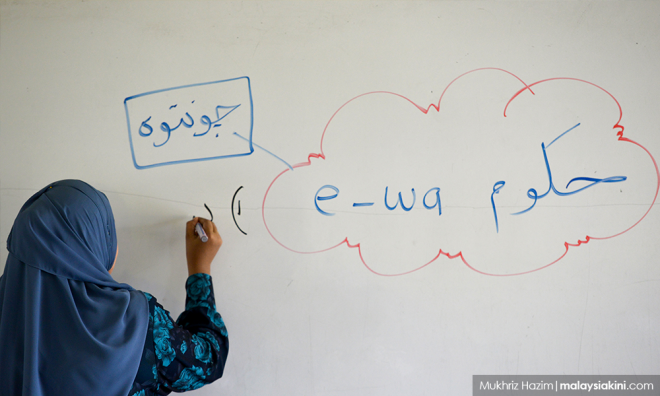
Anyone familiar with the events leading to Operation Lalang in 1987 could see from the start where this latest controversy over the introduction of khat calligraphy is leading to.
And now, on cue with his mischievous 1987 script, Prime Minister Dr Mahathir Mohamad has once again warned the Chinese education group, Dong Jiao Zong, on carrying out their protest congress on Dec 28.
He said the Malay community might respond by organising its own congress demanding the shutting down of vernacular schools who are against the introduction of khat calligraphy lessons.
Surely a prime minister who came to power on a progressive educational manifesto that was intended to take Malaysia to new heights, would, first of all, discuss with the stakeholders.
He would also take the time to explain the valuable educational rationale of introducing khat calligraphy into the vernacular schools’ already burdensome curriculum.
Their concerns extend beyond the supposedly three pages of the Standard 4 curriculum – they want to know what will be in the Standard 5 and 6 curriculum and where this is all leading in the face of mastering BM and English.
Incidentally, the Council of Buddhism, Hinduism, Christianity, Sikhism has also opposed this proposal to introduce khat calligraphy in the primary school curriculum because of its Islamic undertones.
Same orchestrated scenario in 1987
Malaysians who are too young to remember Operation Lalang might like to know that we had a similar orchestrated “controversy” involving the vernacular schools in 1987.
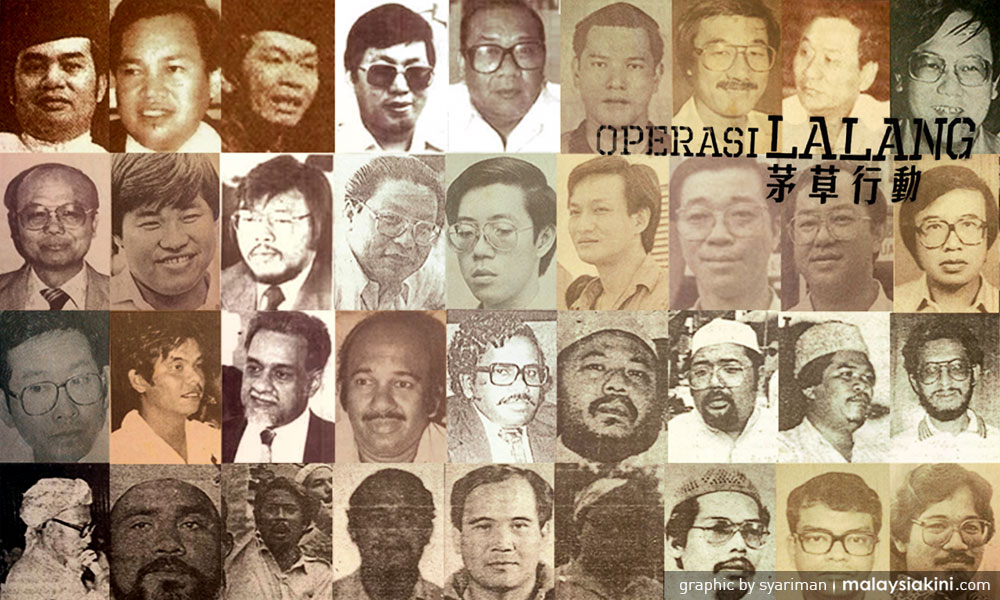
This is the observation by Amnesty International during Operation Lalang:
“Informed observers argued that those arrested had done little or nothing to provoke racial or religious tension and that on a number of critical issues government ministers and members of the ruling National Front coalition had played up and aggravated the perennial political and communal tensions that underlie Malaysian society for purposes of their own”.
Storm clouds over Malaysian politics had begun to gather from the time of the UMNO general assembly in April 1987 when the split down the middle in Umno caught the imagination of everyone.
Mahathir had been re-elected by the skin of his teeth! What followed through the subsequent months was to add to the storm clouds hanging over Umno.
The sacking of the Team B ministers led by Tengku Razaleigh from the Cabinet; Team B members going to court to seek rulings that the outcome of the April 1987 party elections be declared null and void and Umno being subsequently declared “illegal” by the court.
What is characteristic of Malaysian politics is that when the dominant party faces internal problems, these problems are quickly externalised.
Needless controversies then seem to break out over various government directives.
In the period we are looking at these included one regarding the recitation of a pledge in Malacca schools in May 1987 which the non-Malays regarded as having Islamic connotations and unacceptable to their beliefs.
In July, the “electives” issue erupted over the University of Malaya's decision to scrap elective courses taught in English, Chinese and Tamil in the respective language departments.
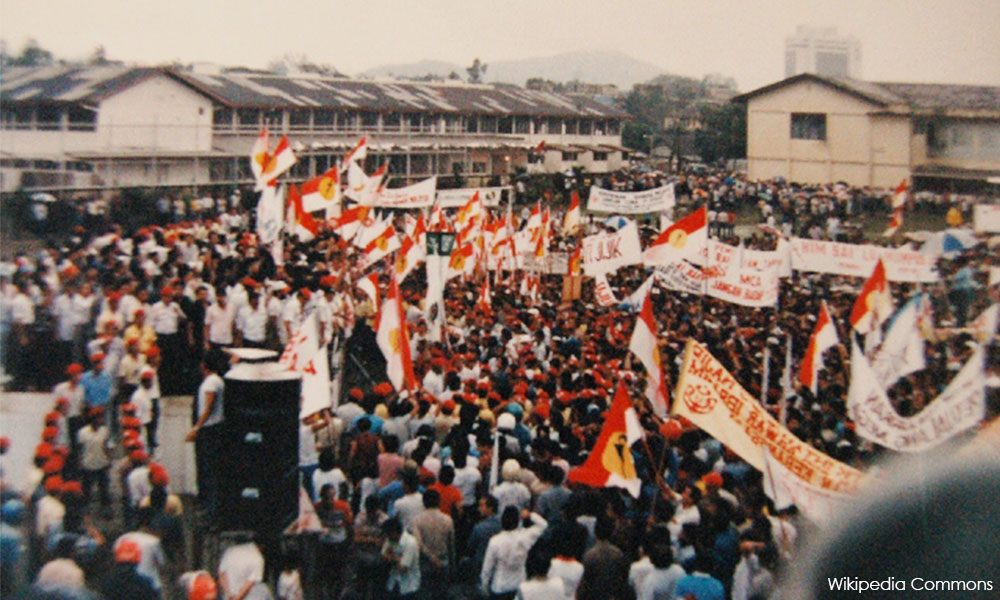
Meanwhile, within the Islamic quarters, there emerged a hue and cry over the Christianisation of Malays by Christian evangelists.
Then in October, the Education Ministry decided to appoint (linguistically) non-qualified senior officials in Chinese-medium primary schools.
This caused an outrage in the Chinese community who did not want the character and standards in these schools to be altered irreparably.
Mass meetings were called in various parts of the country calling upon the parties to resolve the issue.
It must be noted that these meetings were orderly and there were no complaints from the police who actually sanctioned the meetings.
The controversy could have been easily solved by recalling these unqualified school administrators but it was left to fester.
In mid-October, Umno Youth staged a rally at an open-air stadium in Jalan Muda, Kuala Lumpur. At this rally, several leading Umno politicians including a Cabinet minister made racially provocative statements.
Banners bearing flagrantly racist and obnoxious slogans such as “Bathe this (Keris) in Chinese blood” and the like (See the government's White Paper) were blatantly displayed.
The government and the police did nothing. They even allowed the proposed Umno anniversary rally of some 500,000 in Kuala Lumpur.
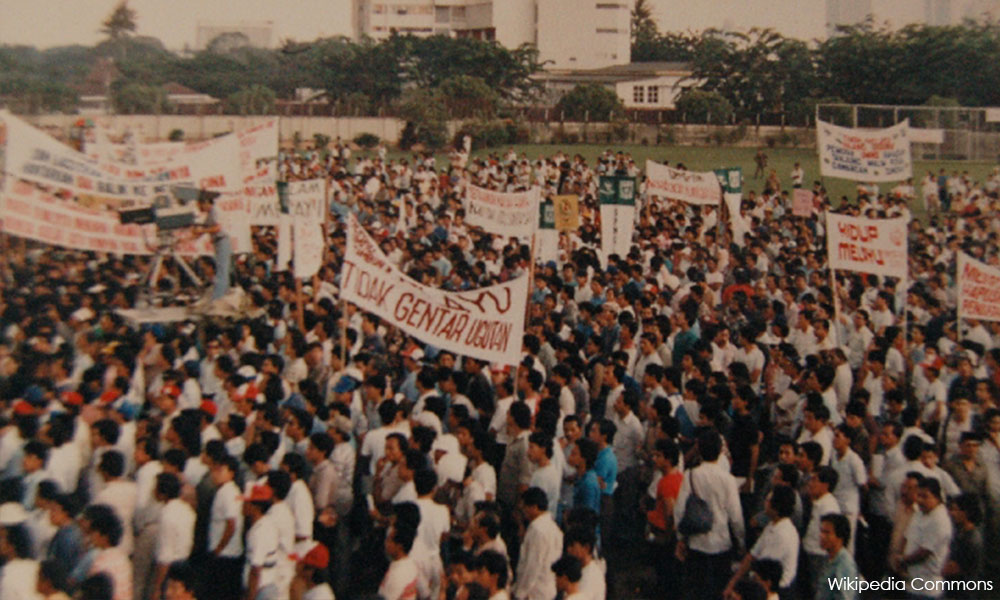
By not disallowing the massive rally plans outright, the racial tension was left to build up. This was the prevailing climate at the time of the Oct 27 1987 operation using the infamous Internal Security Act.
Since that dastardly Operation Lalang, Mahathir has consistently refused to apologise but instead argued that it was the Inspector-General of Police (Hanif Omar) at the time, who had executed the operation.
On Feb 16 2014, the opposition leader Lim Kit Siang who was also detained under Ops Lalang, called for Mahathir to apologise to all those detained in Operation Lalang under the ISA as he could not shirk responsibility for the dragnet, especially as he was Home Minister at the time:
“Mahathir can tell lies without batting an eyelid about the history of his premiership but he cannot change history at his whim and fancy.
It is indisputable that Mahathir was the Home Minister during the Operation Lalang crackdown in 1987 and there was no "Musa" at the time acting as Home Minister.
It is most unworthy and even cowardly of Mahathir to deny that he was responsible for the most infamous violation of human rights in the Operation Lalang ISA crackdown in 1987, made doubly worse by his attempt to even deny that he was Home Minister.”
Is Dr M feeling insecure again?
How different is the crisis facing Mahathir today compared to October 1987?
Amidst the rising cost of living, rising household debts, increased business uncertainty and a slowdown in the global economy, foreign investors are not returning to the Malaysian stock market despite falling prices that have made local equity among the most undervalued in the region.
Malaysian stocks have fallen to their lowest value in a decade. In this political-economic quagmire as in October 1987, Mahathir needs some diversion that can rally the faithful.
And as in October 1987, the favourite bete noire of Malay supremacists is Dong Jiao Zong and vernacular education.
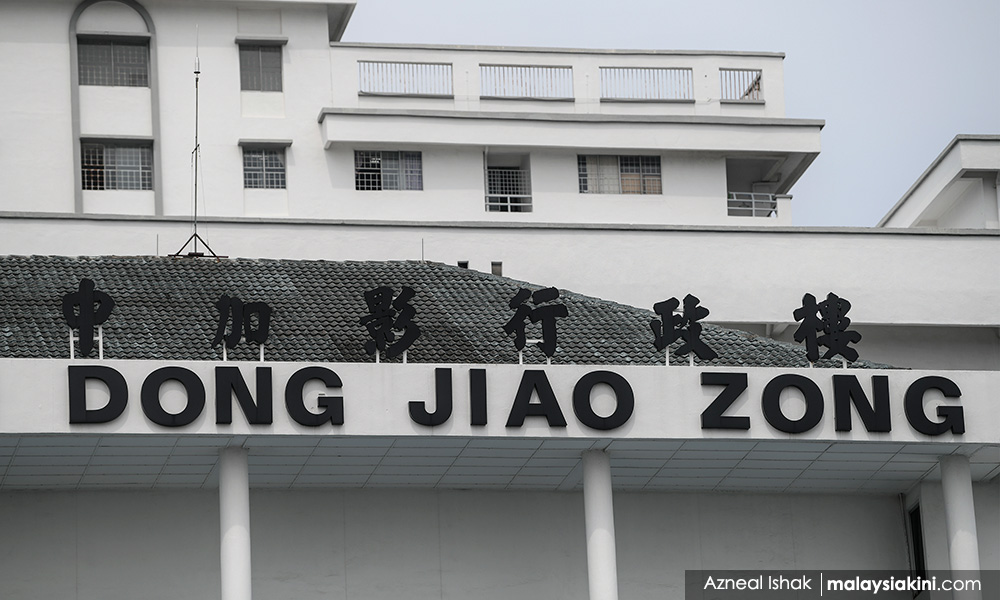
Within the PH coalition, the khat, Lynas and now the LTTE issues have torn the DAP apart while the leadership struggle in PKR remains irresolvable when both leaders are preoccupied with sex scandals.
Faced with an imposing challenge by the Umno-PAS alliance, Mahathir’s own Parti Pribumi is desperate to prove it is worthiness as a champion of the Malays.
Thus, by introducing khat calligraphy into the school curriculum out of the blue, he has pitted the Chinese community against the DAP for failing to protect Chinese rights and education.
After the Tanjong Piai by-election, it is crystal clear that the DAP is facing its biggest crisis since Pakatan Harapan came into power. This crisis has been contributed in no uncertain terms by the khat controversy.
No doubt, this khat controversy will help to prop up Mahathir as the leader of the Bumiputera agenda while at the same time neutralising the DAP.
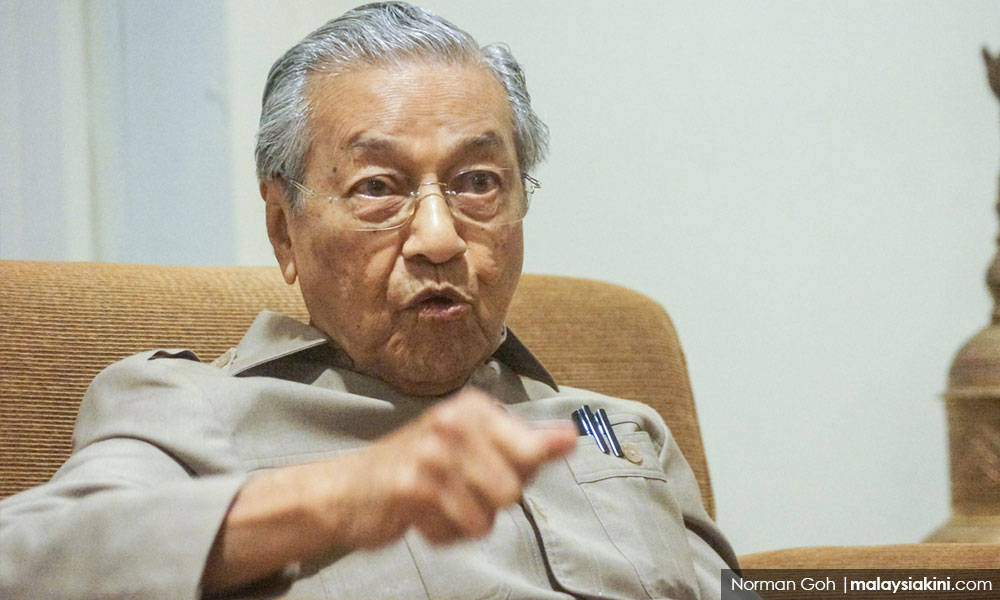
By fanning the khat controversy instead of trying to solve it, Mahathir is attempting to boost his status as the champion of the Malay agenda through his control over the Malay based parties not only in PH but also among the opposition.
Are Malaysians wiser now after the orchestrated “crisis” that led to Operation Lalang in 1987? The leaders in the two coalitions must think of the consequences for democracy if they allow a reprise of 1987.
Thus, Suaram calls on the Education Minister Maszlee Malik to immediately discuss with stakeholders in this unnecessary controversy and explain the rationale of introducing khat calligraphy into the vernacular schools’ already burdensome curriculum.
And since Maszlee is a fan of the progressive Finnish education system, he might want to discuss with the same stakeholders how we can make the Malaysian education system not just more democratic but also more autonomous and decentralised.
KUA KIA SOONG is Suaram adviser. - Mkini


No comments:
Post a Comment
Note: Only a member of this blog may post a comment.